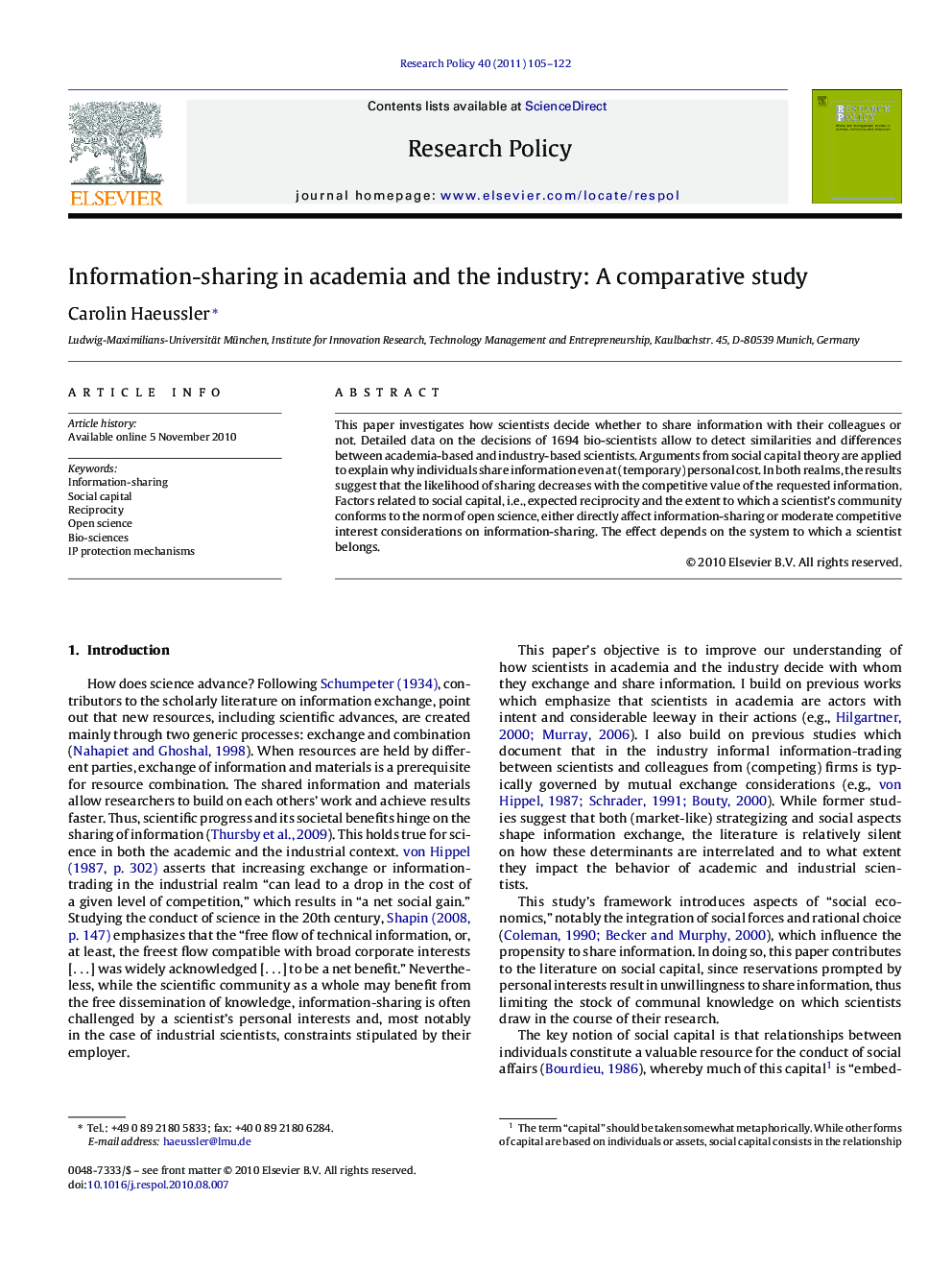| Article ID | Journal | Published Year | Pages | File Type |
|---|---|---|---|---|
| 984160 | Research Policy | 2011 | 18 Pages |
This paper investigates how scientists decide whether to share information with their colleagues or not. Detailed data on the decisions of 1694 bio-scientists allow to detect similarities and differences between academia-based and industry-based scientists. Arguments from social capital theory are applied to explain why individuals share information even at (temporary) personal cost. In both realms, the results suggest that the likelihood of sharing decreases with the competitive value of the requested information. Factors related to social capital, i.e., expected reciprocity and the extent to which a scientist's community conforms to the norm of open science, either directly affect information-sharing or moderate competitive interest considerations on information-sharing. The effect depends on the system to which a scientist belongs.
